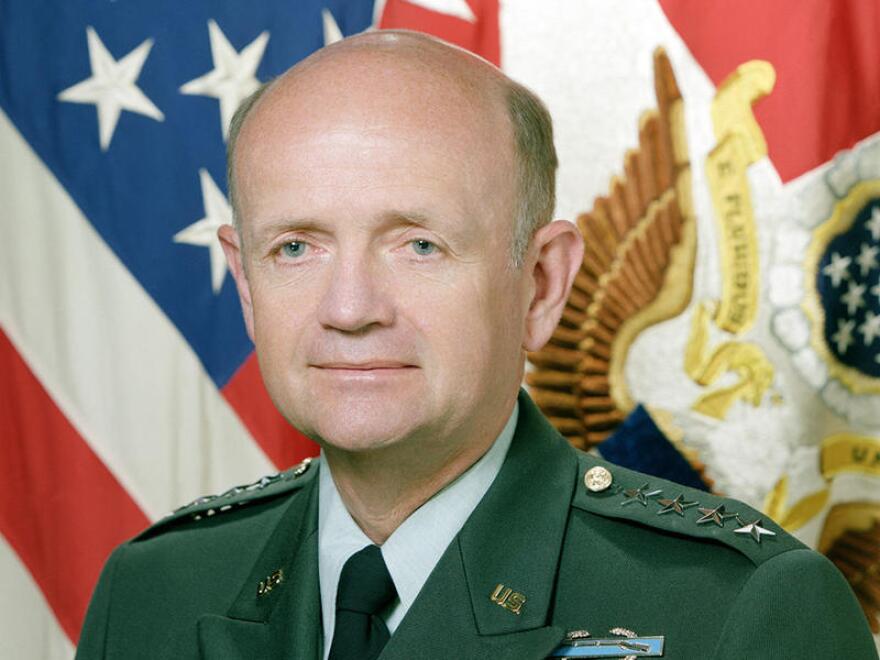In 2007, the CNA Military Advisory Board issued a report calling climate change a “threat multiplier.” Seven years later, an update to the report included more urgent language, calling climate change a “catalyst for conflict.”
Retired four-star Gen. Gordon Sullivan, a member of the military think tank that released the reports, says that things have accelerated in the past several years. “The findings that we saw in the original report, where we talked about the destabilizing effects of climate change, droughts and floods ... rising sea levels and warming oceans … the trends were accelerating,” he says. “It became more and more apparent with such crises as the Arab Spring that climate change was in fact some of the [phenomena] that really became a source of conflict.”
"The findings that we saw in the original report, where we talked about the destabilizing effects of climate change, droughts and floods ... rising sea levels and warming oceans ... the trends were accelerating." - Gen. Gordon Sullivan
Sullivan says although it’s impossible to draw direct connections between climate change and recent conflicts, that it’s certainly one of the variables. He talks about a recent drought that hit the U.S., Russia and China before conflict erupted in Syria, which limited the import of wheat into the country. “A lot of the caloric intake by the Egyptians and Syrians comes from bread. And in the case of Syria, they also had a drought and people moved into the cities … The combination of the Russians being unwilling to sell their wheat for export and [Syria’s] own diminishing wheat crops caused a lot of unrest in the cities, which couldn’t handle those who [were] seeking work, and one thing led to another.”
Although drought wasn’t the only cause for the Syrian Civil War, Sullivan says it was definitely one of the variables. Sullivan explains it isn’t a new phenomenon. “Back in Somalia in the early '90s, there was a drought … the U.S. was [sending] food and humanitarian aid into Somalia and we didn’t realize, initially anyway, that the war lords were actually robbing that food and selling it to their own tribes. And the others were dying,” he says.

There is some criticism that the international community isn’t doing enough to change the trend, or even recognize that climate change is happening. Gen. Sullivan says it’s more concern than impatience. “It’s become a very partisan issue in the United States and because of that, it’s political. It became [about] believers and non-believers,” he says. He thinks, however, that people are becoming increasingly concerned about the issue.
The advisory board’s 2007 report suggested that U.S. combatant commanders, who are stationed throughout the world, should include climate change adaptation in their plans. Sullivan says one commander, Navy Adm. Samuel Locklear, is already doing so. “In his speech, he said that he had told his subordinate commanders they were liable not to see armed conflict in the Pacific. But what they would see are the effects of global climate change, such as the storm that hit the Philippines and the floods that hit Bangladesh.” Sullivan says that any time a large population of people is forced to relocate, turmoil could result.
Sullivan sees the duties of the military having more to do with natural disasters in the future. Of young soldiers, he says, “Probably in their lifetime in the military, even if they only stay four years, that within that time of service they will be called upon to either plan [for] or participate in some natural disasters.”
Sullivan will be speaking about how climate change affects conflict at his alma mater, Norwich University, on Thursday, Feb. 5 at 7 p.m.






